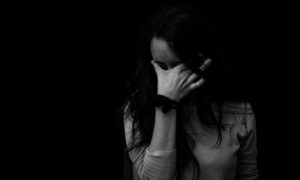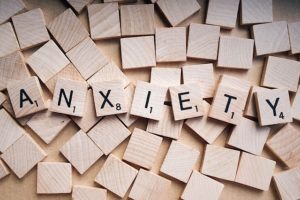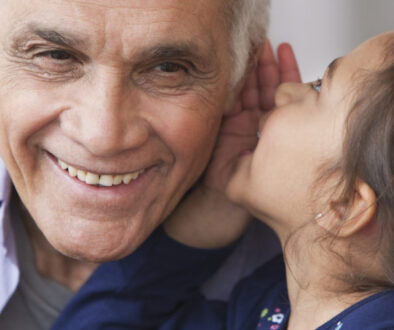Are you suffering from anxiety?
In general, anxiety is a negative mood state characterised by bodily symptoms of physical tension and apprehensive thoughts about the future.
Anxiety is associated with an overactive imagination and fear based on an inability to predict or control upcoming events.
Anxiety in itself isn’t a bad thing. It can help you to stay alert and more focused for performance critical activities and situations.
However, if your feelings of anxiety are overwhelming, excessive and getting in the way of living a fulfilled life, then your anxiety may be an issue.

Is anxiety starting to become a problem for you?
- Do you frequently feel nervous in social situations?
- Are you often plagued by fears that you can’t seem to shake?
- Do you experience unexplained pain in your your body?
- Do you find it hard to concentrate?
- Do you worry that something is going to go wrong, and you can’t stop it?
- Do you experience panic attacks?
- Are these feelings of dread starting to interfere with your relationships, your work or other areas in your life?
If you answered “yes” to any of these questions, you may be suffering from anxiety.
There are numerous types of anxiety like general anxiety, performance anxiety and social anxiety. Even when we know that there is no real danger, anxious feelings seem to remain.
At its extreme, you may experience phobias, panic attacks, post-traumatic stress disorder and obsessive-compulsive disorder.
Differentiating Anxiety
The symptoms of anxiety have a lot in common with other mental disorders, but here’s a quick guide to differentiate between anxiety and other disorders.
1. Anxiety vs. Depression
Anxiety has more to do with a sense of doubt and helplessness about future events. People with depression, however, are less concerned about the future and are more certain that things will be as bad for them in the future as they are in the present. Unlike those diagnosed with an anxiety disorder, those diagnosed with depression also experience a lack of motivation to do things they enjoy, a lack of energy, feelings of hopelessness, and thoughts of death and suicide.
2. Anxiety vs. Bipolar Disorder
The primary difference is that those with bipolar disorder experience sudden and extreme shifts in mood from elation to depression. During their manic (high) mood, they usually have high levels of energy and enthusiasm, with a lot of impulsive actions. During their depressed (low) mood, they experience the symptoms of depression as discussed above.
3. Anxiety vs. OCD
Obsessive compulsive disorder is a type of anxiety disorder. However, the difference between GAD (Generalized Anxiety Disorder) and OCD is that those who have GAD don’t typically engage in the compulsive and ritualistic coping behaviours that those with OCD depend on.
Symptoms of Anxiety
Below are some of the symptoms of an anxiety disorder. If you experience any of these symptoms, you may have an anxiety disorder that requires professional help.
- Feeling overly worried about things having a certain outcome. You worry about things that you have no control over, even if you know that worrying will do nothing. You focus your attention on worrying, to the point that you can’t do anything else.
- Excessive uneasiness or apprehension. You feel physical discomfort when doing certain things that most people do with ease. For instance, you can’t muster up the courage to order something from a restaurant or you feel unnecessarily uneasy when you’re surrounded by your co-workers.
- Thinking too much about the future. Even if you know that the future is uncertain, do you find yourself thinking about it so much that you begin to neglect your present responsibilities? Anxiety stems from fear about the future and not knowing how it will unfold.
- Controlling behaviours. You try to manage your anxiety by controlling everything you can about yourself or others, to the point that you’re afraid of losing control. For instance, you’re overly strict with yourself by setting a rigid schedule that you compulsively adhere to. You might also impose your rigid schedule or ‘rules’ on others. In work settings it might look like micro-management.
- Brain fog and difficulty focusing. You can’t seem to focus on things that need your attention. Your anxiety often clouds your mind and causes you to become forgetful and less focused. This then affects your work and your relationships and people may perceive you to be ‘spaced out.’

- Extreme self-consciousness. You feel like everyone’s looking at you and analysing your every move. This makes you so self-conscious that you end up blushing, sweating too much, or even shaking. Your self-consciousness can make it hard for you to talk to people or be around others.
- Chest pain, tightness in muscles, shallow breathing, paralysis. Anxiety often has physical manifestations. Do you find yourself biting your nails, clenching your jaw, balling your fists, fidgeting or tensing your muscles? Do you feel like there’s a weight on your chest that keeps you from breathing normally? Do you feel like you’re choking on something? Lastly, do you feel completely incapacitated when you’re anxious? These are common physical manifestations of an anxiety disorder.
- Problems with digestion. Irritable bowel syndrome is common for people who have anxiety problems because the digestive system is very sensitive to psychological stress. Does your stomach ever feel tied up in knots? Other digestive problems that may be caused by anxiety include vomiting, frequent urination, and diarrhoea.
- Sleep problems. Difficulty falling asleep or staying asleep are often associated with anxiety. Lying awake at night, tossing and turning, and constantly feeling like your mind is racing are common signs of anxiety, which cause sleep problems. This may often leave you feeling tired and irritable for the rest of the day. It can be a vicious cycle.
Causes of Anxiety
What experiences and temperament will end up spelling anxiety for you?

However, other causes include:
- An inherited tendency to be tense, uptight or overemotional.
- Adverse childhood experiences that change brain development and stress responses.
- Sensitivity in the behavioural inhibition system (BIS) in the brain.
- Smoking during adolescence.
- Modelled fears from parents.
- Controlling or strict parenting or conversely unstable and unpredictable parenting.
The most noteworthy cause of anxiety is the cumulative effect of low-grade stress that is often experienced in modern life.
Anxiety is strongly linked to your sense of control and belief that you can cope with adversity.
In the next article, I’ll be talking about a holistic or integrated treatment approach to support you in overcoming anxiety.





